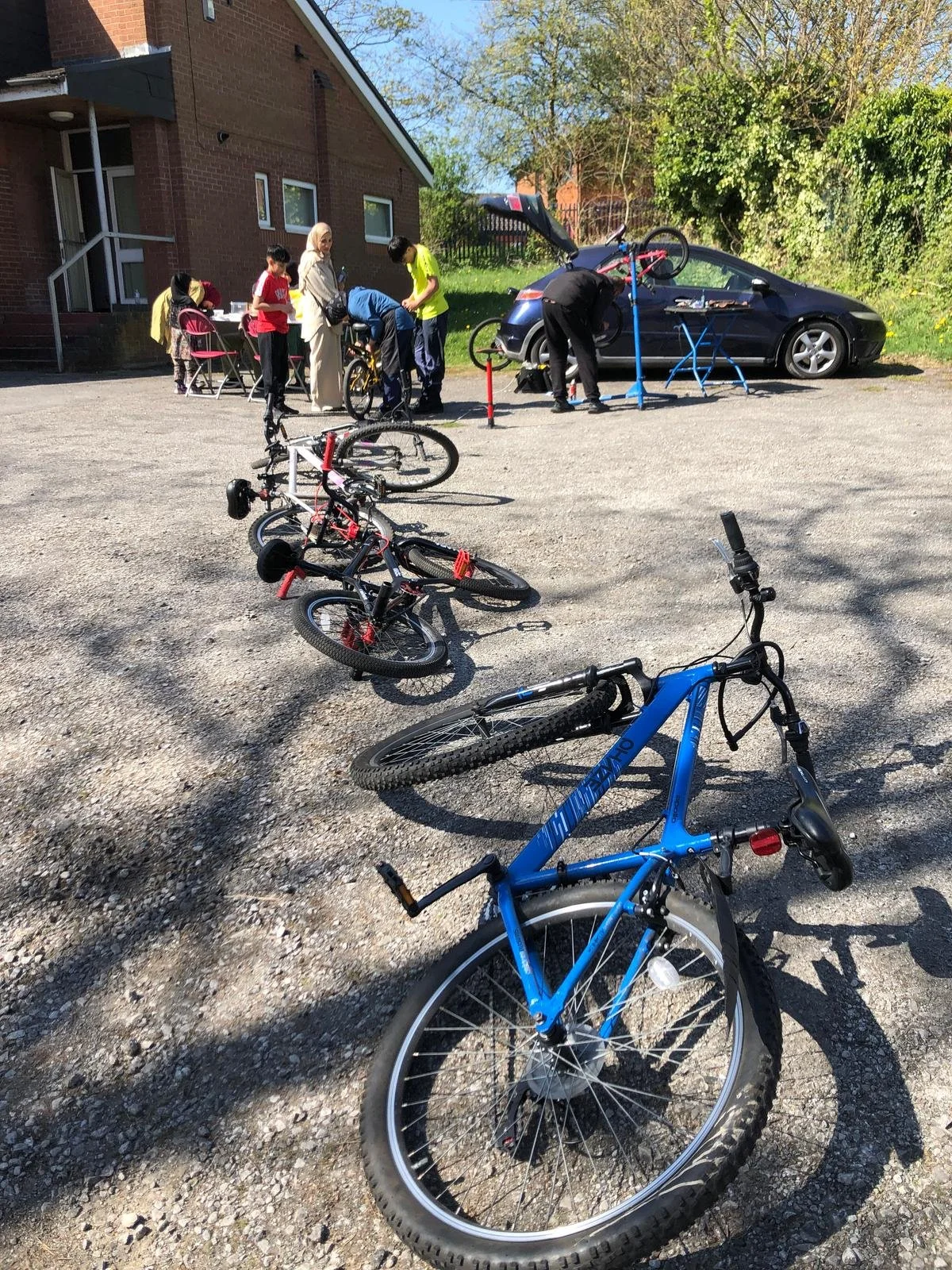Case Study: Supporting residents through the cost-of-living crisis by taking climate action
We teamed up with Cheetham and Crumpsall Anti-Poverty Group to help them engage the local community in a number of carbon saving activities that helped people to save money.
Meet Cheetham and Crumpsall Anti-Poverty Group
Cheetham and Crumpsall Anti-Poverty Group are a uniquely grassroots, cross-sector partnership responding to the rising cost of living in North Manchester.
Formed in March 2024, the group unites a diverse network of local organisations, faith centres, and frontline service providers—all focused on a shared goal:
supporting residents through the cost-of-living crisis by delivering practical, money-saving and carbon-reducing solutions.
Members of the Cheetham and Crumspall Anti-Poverty Group are: The Rainbow Centre, Barnardos, Winning Hearts and Minds, North Manchester Community Partnership, The Wai Yin Welcome Centre, New Testament Church of God, Rainbow Surprise, Bike It Walk It. Cheetham Hill Advice Centre, Manchester Central Foodbank, Manchester Jewish Museum, Khizra Mosque, Groundworks, Citizens Advice Manchester and Yes Energy.
Supporting residents to save money (and carbon!)
An action plan was developed following consultations with frontline workers and listening to community voices. During these discussions the Group identified the neighbourhood’s most pressing anti-poverty needs which included rent, food and energy, as well as conversations around heating costs, damp and mould, and private landlords, which these events sought to help address.
We supported the Group to deliver five events at community venues, these events were designed not just to offer immediate support, but also to empower attendees with skills, knowledge, and vital connections.
Each event included a workshop to address local concerns, for example, how to reduce energy while cooking, how to mend your clothes, cycling confidence and bike maintenance. Events also included a hot meal, activities for the family and practical items including sewing kits, draught excluders, toolkits, and slow cookers for attendees to take home.
Cheetham and Crumpsall Anti-Poverty Group leveraged their connections with trusted organisations like Citizens Advice, Groundwork Greater Manchester’s Energyworks Team, Cheetham Hill Advice Centre, Be Well and local NHS partners to bring wider opportunities for the community to access advice and support during these events too.
The collaborative nature of these events also meant materials, information, and support reached hundreds more people through leaflet drops, referrals, and day-to-day signposting.
The impact
In total, 175 people attended, reflecting the diverse population of the area thanks to targeted outreach through respected community partners.
142 people directly engaged in the workshops.
Over 37 bikes were repaired.
Groundworks Energyworks Team gave advice to 52 people and provided 16 home energy visits.
Citizens Advice provided advice to 66 people.
32 health checks were provided with nine people referred to a GP.
13 people learnt CPR.
What people told us about these events
Residents and community partners highlighted the social and financial benefits of this approach…
“The advice and organisations present were so helpful; people received more than they came for. The interaction between services led to easy referrals—our community received a lot of value and support.”
— Rainbow Centre partner“Bikes were made safe and back in use, which means more car-free journeys and time outdoors. We empowered residents with skills and confidence to keep them going.”
— Bike It Walk It“Workshops have been an eye-opener, very educational. I learnt so much about health, wellbeing, and ways to save energy at home.”
— Event participant
Key lessons
A partnership approach multiplies impact. By coordinating efforts and pooling resources, the Group reduced duplication, saved time and money on delivery, and built sustainable connections between residents and services.
Offer both immediate and longer-term support. Practical items like bikes, slow cookers, repair kits, and draught excluders all save money and reduce carbon footprints—while follow-up appointments and tailored advice help prevent future crises.
Building trust and community. Shared meals, familiar faces, and activities for all ages fostered a sense of belonging, empowered residents, and increased engagement with advice services.
What’s next
By working together, the Cheetham and Crumpsall Anti-Poverty Group is delivering holistic, practical support—meeting urgent needs now while building the resilience and skills that create lasting impacts for residents and the environment.
Feedback from the events demonstrated the need for…
More regular, seasonally timed events (especially in autumn and winter).
Ongoing practical workshops, like bike repair, DIY and energy-saving cooking.
Expanding signposting to income-support schemes—like home energy advice and winter warmer packs.
Continuing to draw on the expertise and reach of diverse community partners.






